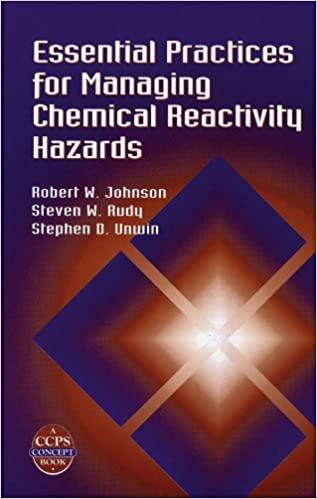Answered step by step
Verified Expert Solution
Question
1 Approved Answer
Chemical engineering applies scientific principles to design, optimize, and operate processes that transform raw materials into valuable products. Theoretical foundations include thermodynamics, governing energy and
Chemical engineering applies scientific principles to design, optimize, and operate processes that transform raw materials into valuable products. Theoretical foundations include thermodynamics, governing energy and chemical reactions; transport phenomena, analyzing momentum, heat, and mass transfer; reaction engineering, studying kinetics and reactor design; and process control, managing system dynamics and optimization. Additionally, materials science informs material selection, and environmental engineering addresses sustainability. How do these theories collectively shape modern chemical engineering, addressing challenges like process efficiency, product quality, and environmental impact? Explore their integration with practical applications, fostering innovation and sustainability in chemical processes worldwide for societal advancement and environmental stewardship.
Step by Step Solution
There are 3 Steps involved in it
Step: 1

Get Instant Access to Expert-Tailored Solutions
See step-by-step solutions with expert insights and AI powered tools for academic success
Step: 2

Step: 3

Ace Your Homework with AI
Get the answers you need in no time with our AI-driven, step-by-step assistance
Get Started


